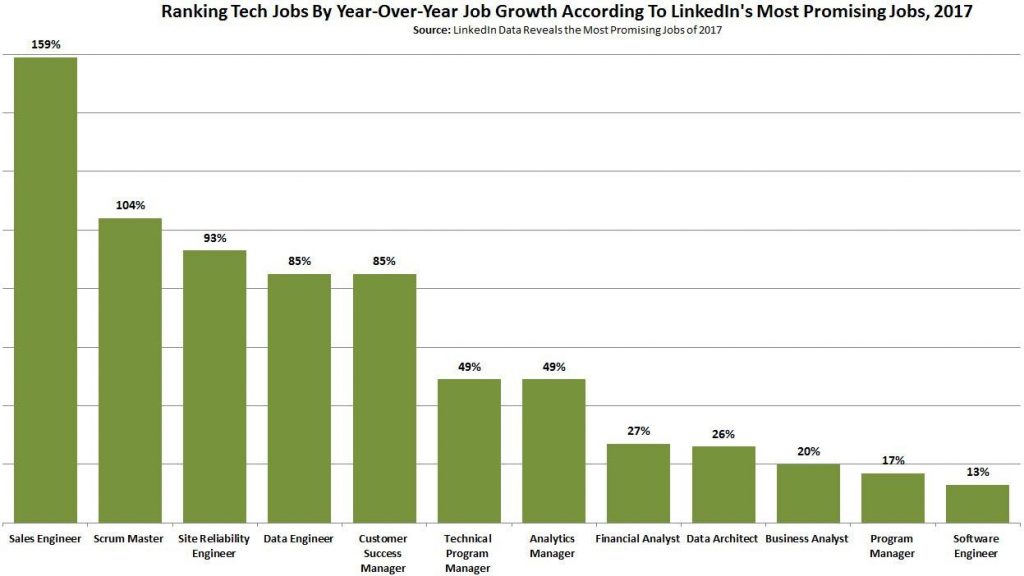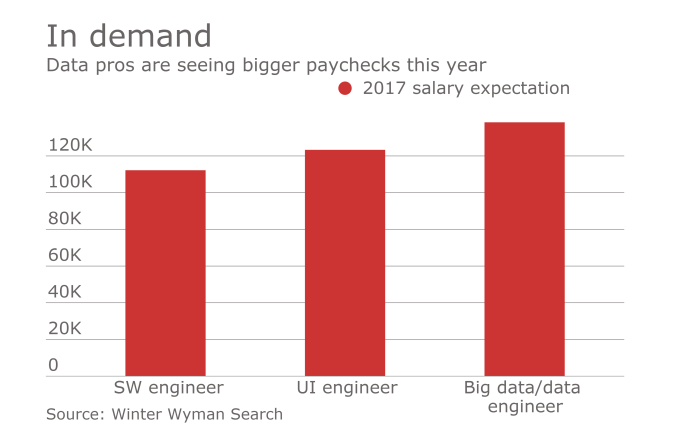Why Data Engineers Are Important in the Data-Driven Transformation of Your Company
If you work in a company even remotely connected to the digital world, you’re probably familiar with analytics and data science. According to a study published by Forbes, the percentage of companies reinvesting in analytics has increased from 17 percent in 2015 to 53 percent in 2017, and that trend is rising.
Analytics and data science have become major influencers in companies with the promise of discovering hidden value behind their data. Because of that, there have long been discussions on the importance of data democratization, the benefits of creating insights from data and why it should be available to the general public, not just to a small group of IT professionals.
Large scale consumption of data within the company will empower individuals with the instruments to make better and more informed decisions supported by numbers and hard facts rather than intuition.
After years of experiments and investments, most companies have still only scrapped the surface of this so-called “data democratization.” In order to bridge this gap, there will have to be collective help from outside parties along with the help from its current supporters, the data scientists.
The role of the data engineer, who are they, and how can they add value to an organization
Data democratization can be the gateway to innovation and to develop new services or products for your customers or employees. Gathering a bunch of files and feeding them to an application that runs for hours is what a data scientist would do, but that’s definitely not a long-term solution.
Now more than ever, the way a model performs and its ability to provide answers within seconds is crucial. The data needs to be gathered, integrated and cleaned automatically, and refreshed as often as possible – maybe even in real-time. This doesn’t sound like your data scientists’ main expertise, and your IT department is – also – not that familiar with analytics and its accompanying technology. So, basically, it’s time to add a new figure to your team: The Data Engineer.
In short, the data engineer is the newer, more advanced version of the Data Scientist and the Software Engineer, combined. This new title is destined to really enable the distribution of data science on a larger scale. Thus, it is not surprising that data engineering jobs rank 5th on the list of the “Most Promising Tech Jobs in 2017,” according to LinkedIn.
Here’s the thing, if you recently started using data science in your company, you have probably already set up a small data analytics team, and you’ve already realized that it’s all about trial and error. First, to discover the right tools for visualization and modeling, then to hire the right people, and to look at your own data from a very different perspective.


During 2017 in the US, the demand for data engineers largely exceeded their availability. This resulted in even higher salaries for data engineers than other figures in the tech industry, like software engineers and UI developers.
How to embrace the data engineers in your organization
Here are some tips for your guidance:
- You probably want to scout within your company and find suitable candidates to educate into this role for the future.
- Think of someone with a hands-on mindset, that takes pride in solving concrete problems and is not afraid of working in multidisciplinary teams!
- You’ll need to get creative in your recruitment and even consider the possibility of hiring freelancers or consultants.
- You can produce authentic video materials to promote towards talent the most appealing traits of your company’s culture.
- If you have data engineers in your company, learn/educate yourself on what they can do, and know that they are valuable assets to your company, ones that you do not want to lose.
The post Why Data Engineers Are Important in the Data-Driven Transformation of Your Company appeared first on This Complex World.
Leave a Comment
You must be logged in to post a comment.







